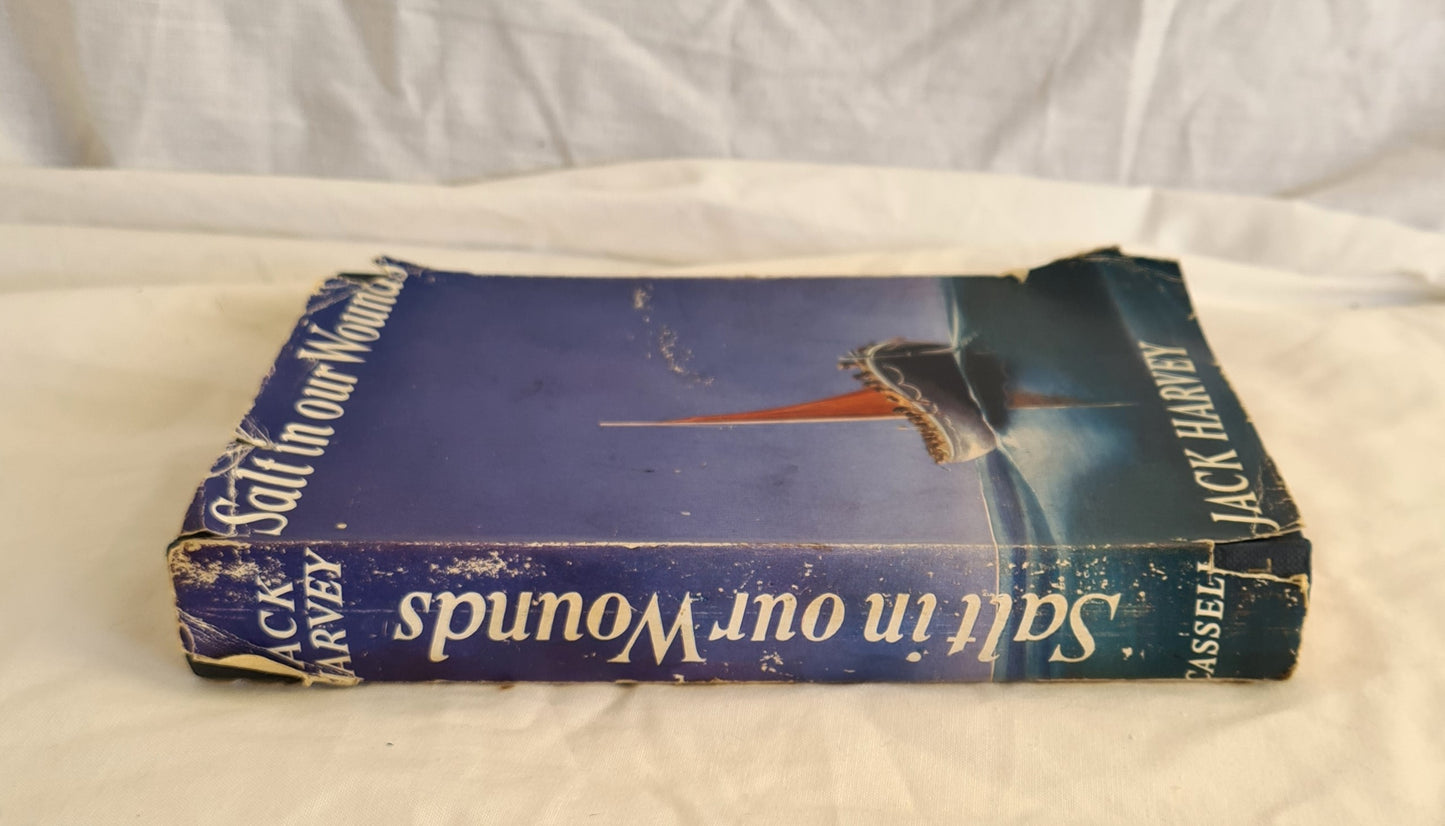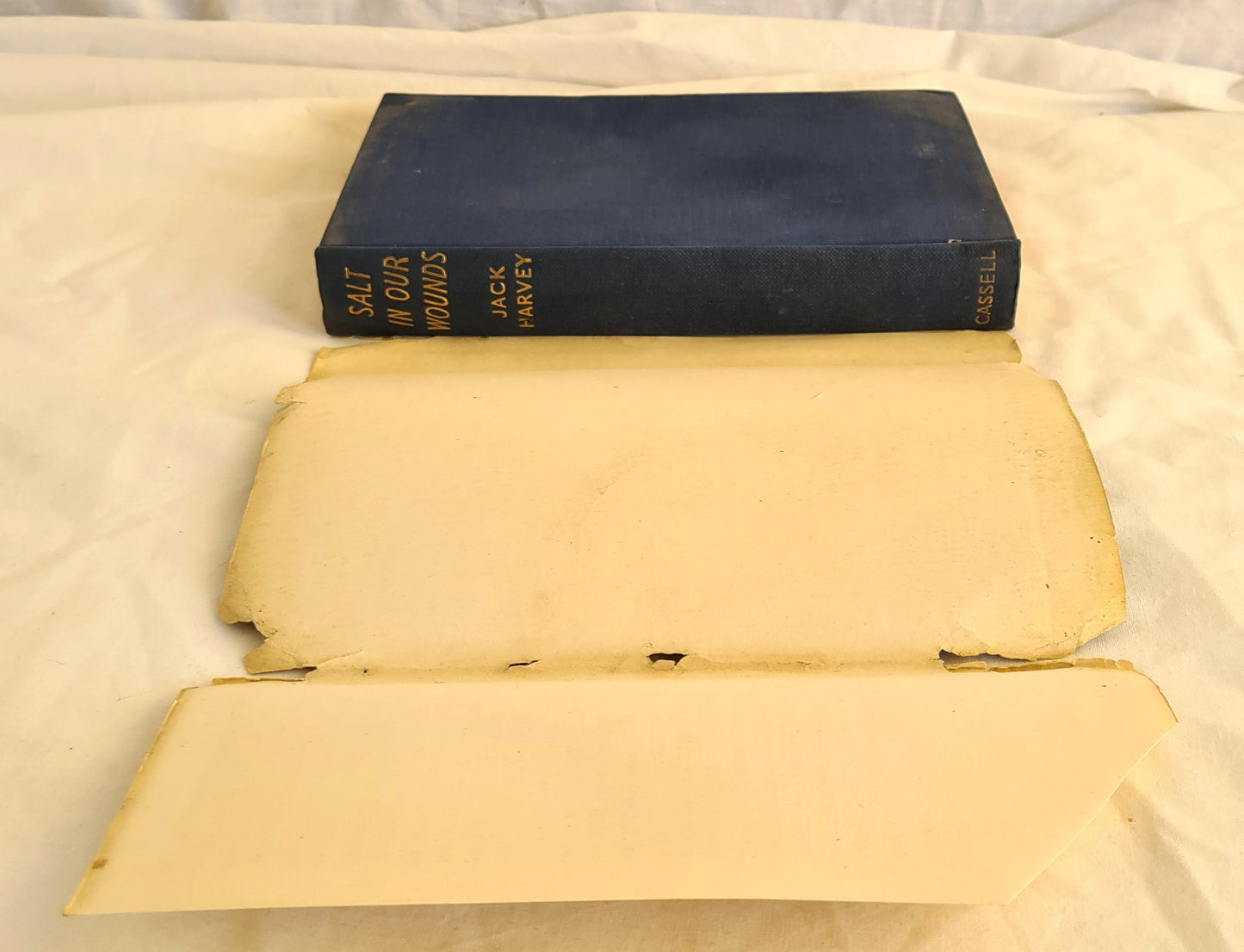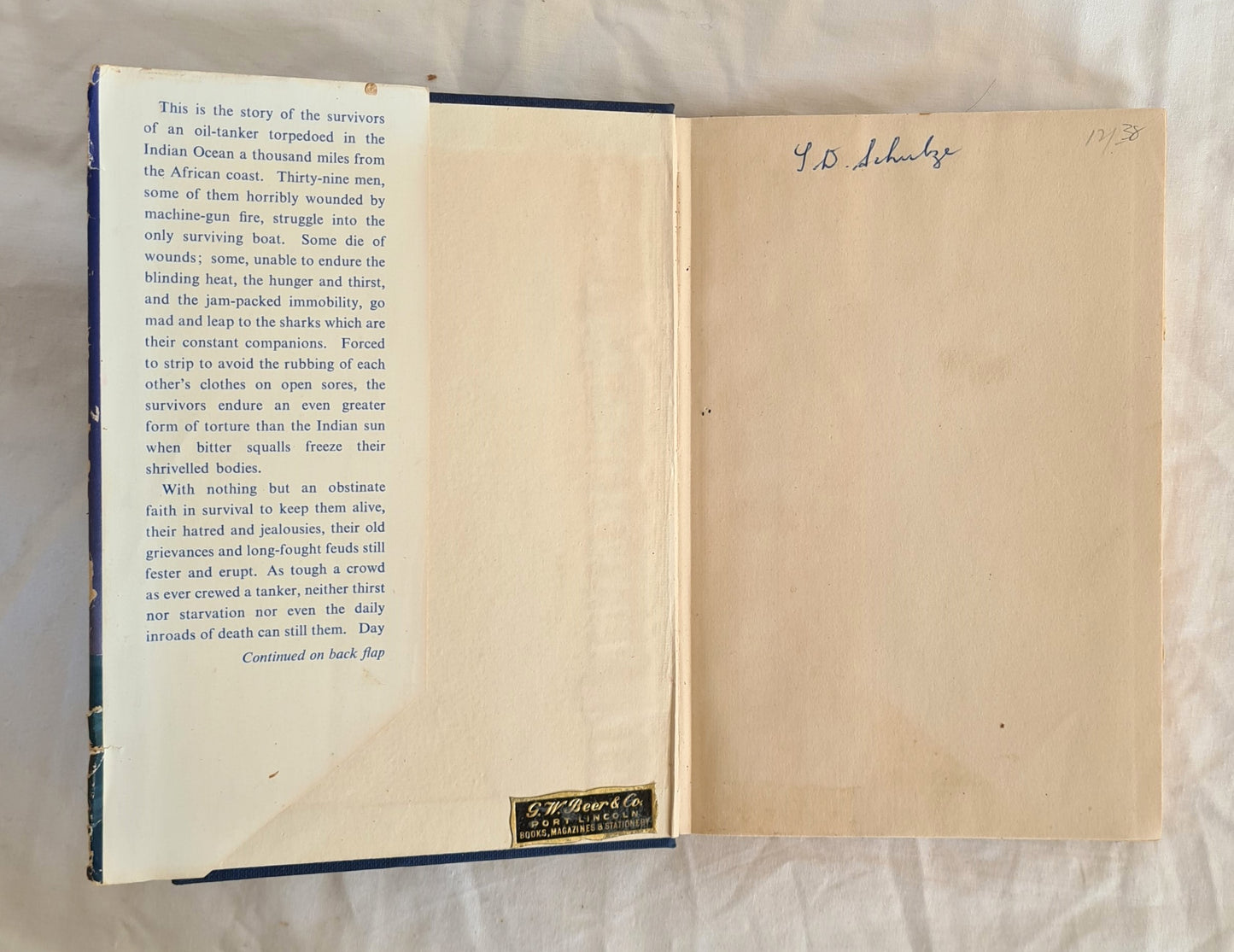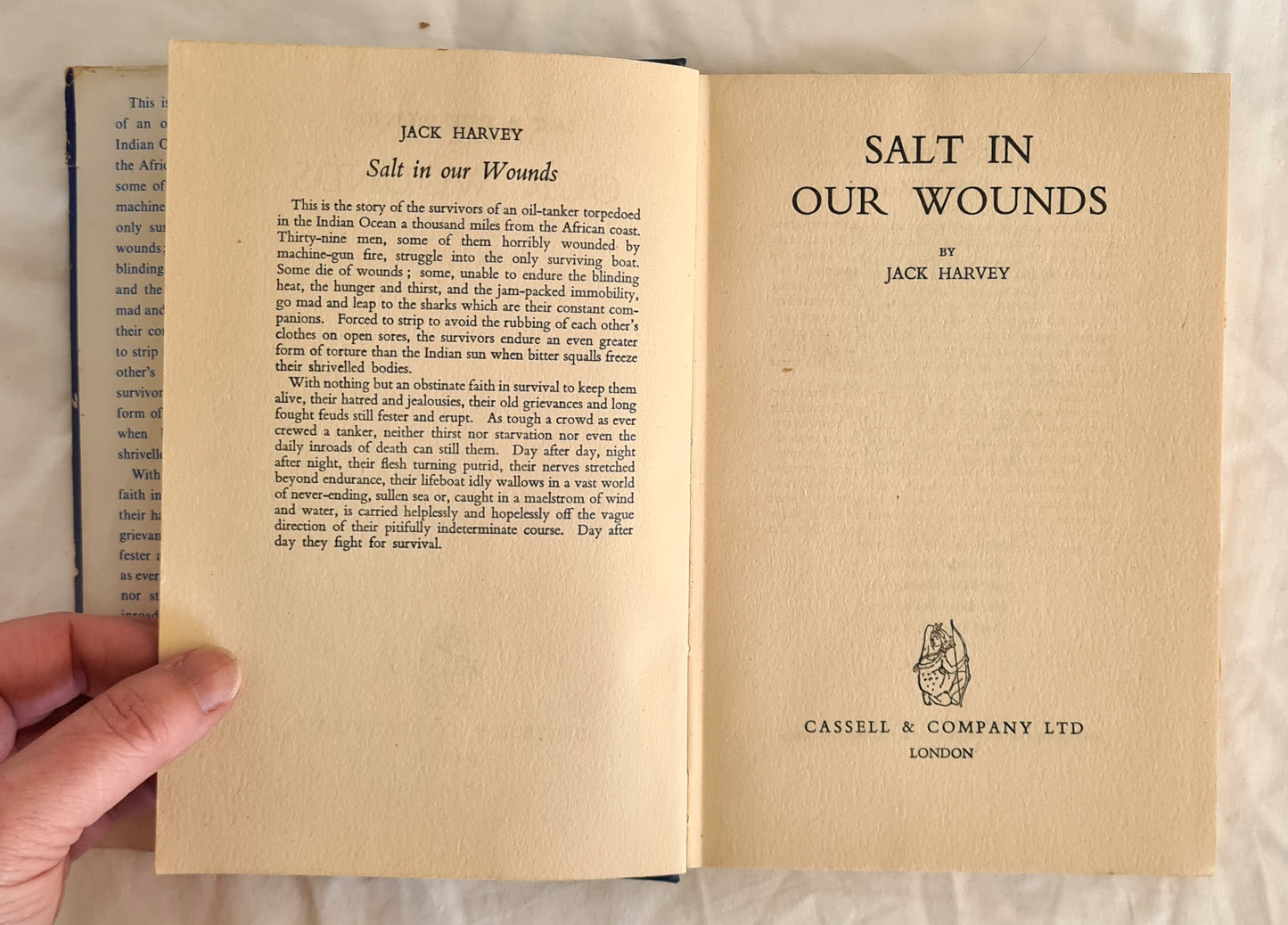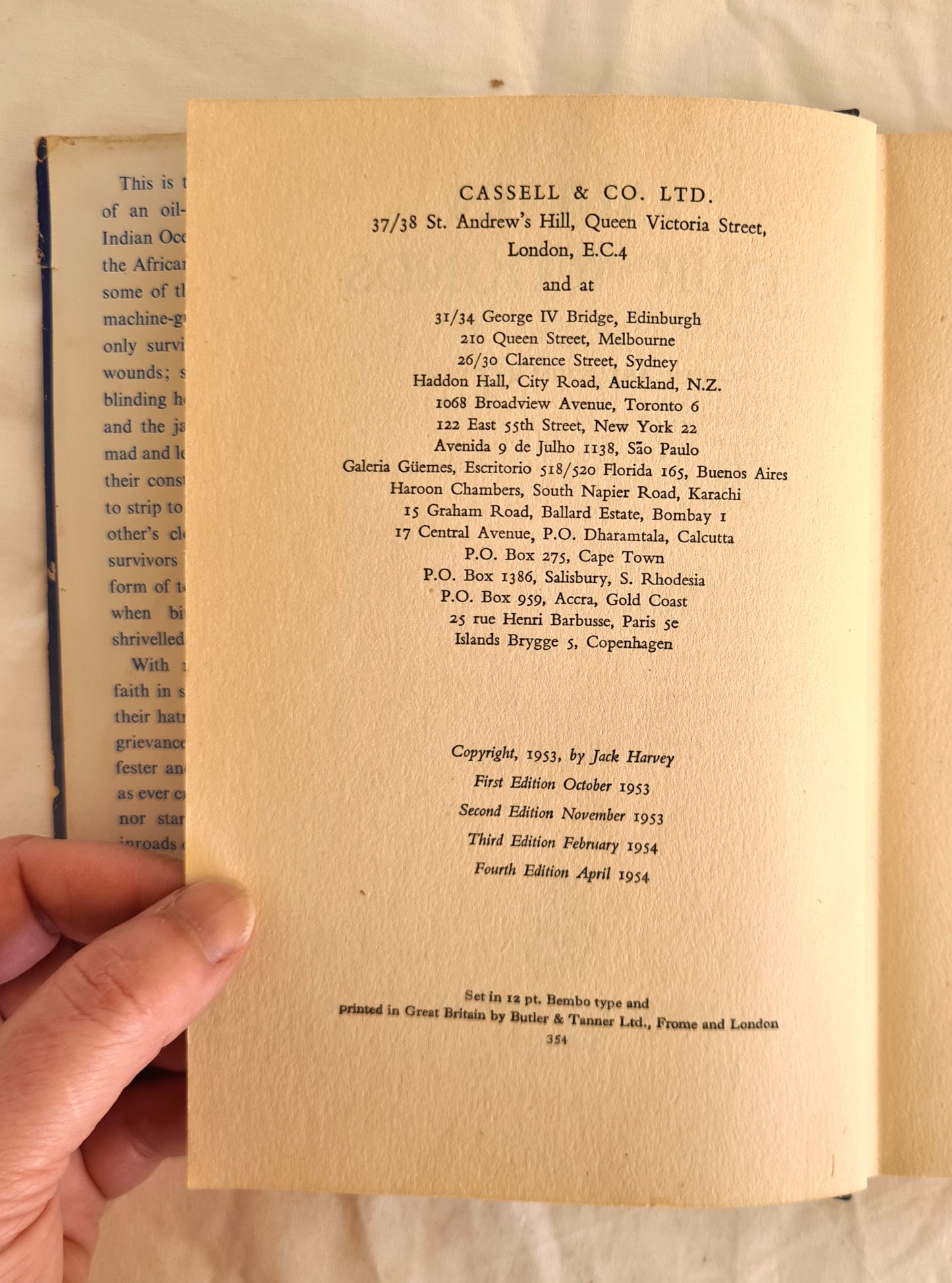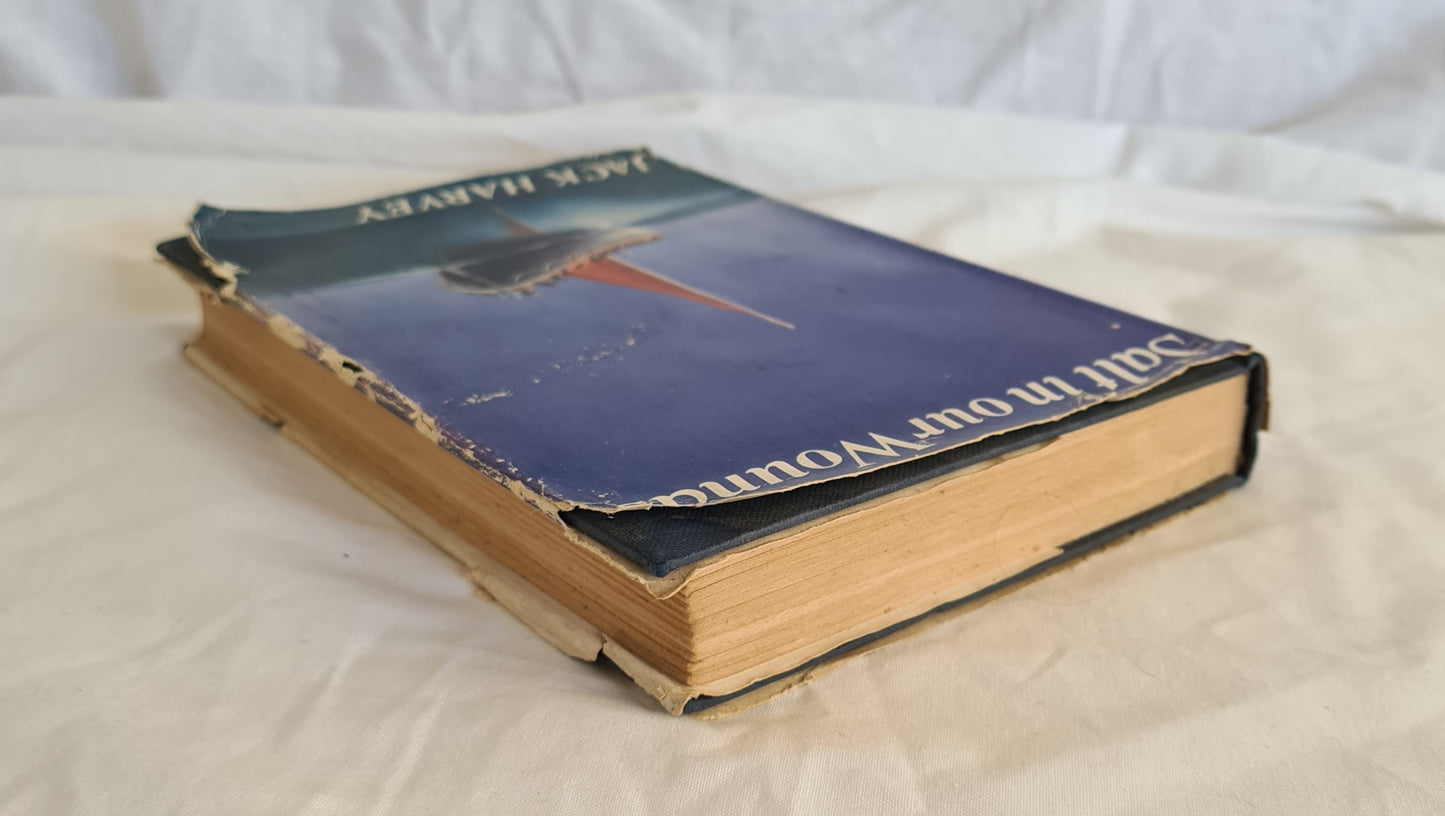Salt in Our Wounds by Jack Harvey
Salt in Our Wounds by Jack Harvey
Couldn't load pickup availability
Salt in Our Wounds
by Jack Harvey
Cassell & Company, 1954 [Fourth Edition], hardcover, dustjacket
Very Good Condition, a little edge and shelf wear, minor rubbing and bumping to edges and corners, previous owners’ inscription on front endpaper, clipped dustjacket shows some edge and shelf wear with some rubbing, bumping, creasing, chipping and tears (see photographs)
“This is the story of the survivors of an oil-tanker torpedoed in the Indian Ocean a thousand miles from the African coast. Thirty-nine men, some of them horribly wounded by machine-gun fire, struggle into the only surviving boat. Some die of wounds; some, unable to endure the blinding heat, the hunger and thirst, and the jam-packed immobility, go mad and leap to the sharks which are their constant companions. Forced to strip to avoid the rubbing of each other’s clothes on open sores, the survivors endure an even greater form of torture than the Indian sun when bitter squalls freeze their shriveled bodies. With nother but an obstinate faith in survival to keep them alive, their hatred and jealousies, their old grievances and long-fought feuds still fester and erupt. As tough a crowd as ever crewed a tanker, neither thirst nor starvation nor even the daily inroads of death can still them after day, night after night, their flesh turning putrid, their nerves stretched beyond endurance, their lifeboat idly wallows in a vast world of never-ending sullen sea or caught in a maelstrom of wind and water, is carried helplessly and hopelessly off the vague direction of their pitifully indeterminate course. Day after Day they fight for survival.
This story has been written by an Australian merchant seaman who, during the last war, suffered just such tortures when his ship was sunk beneath him. Jack Harvey endured the agony for thirty-eight days and lived. Out of the hell of his own experiences has come this story – its characters fictitious, but each portrayed from the author’s intimate knowledge of a group of men and their reactions to adversity, and desperate hope, and the terror of death.”










